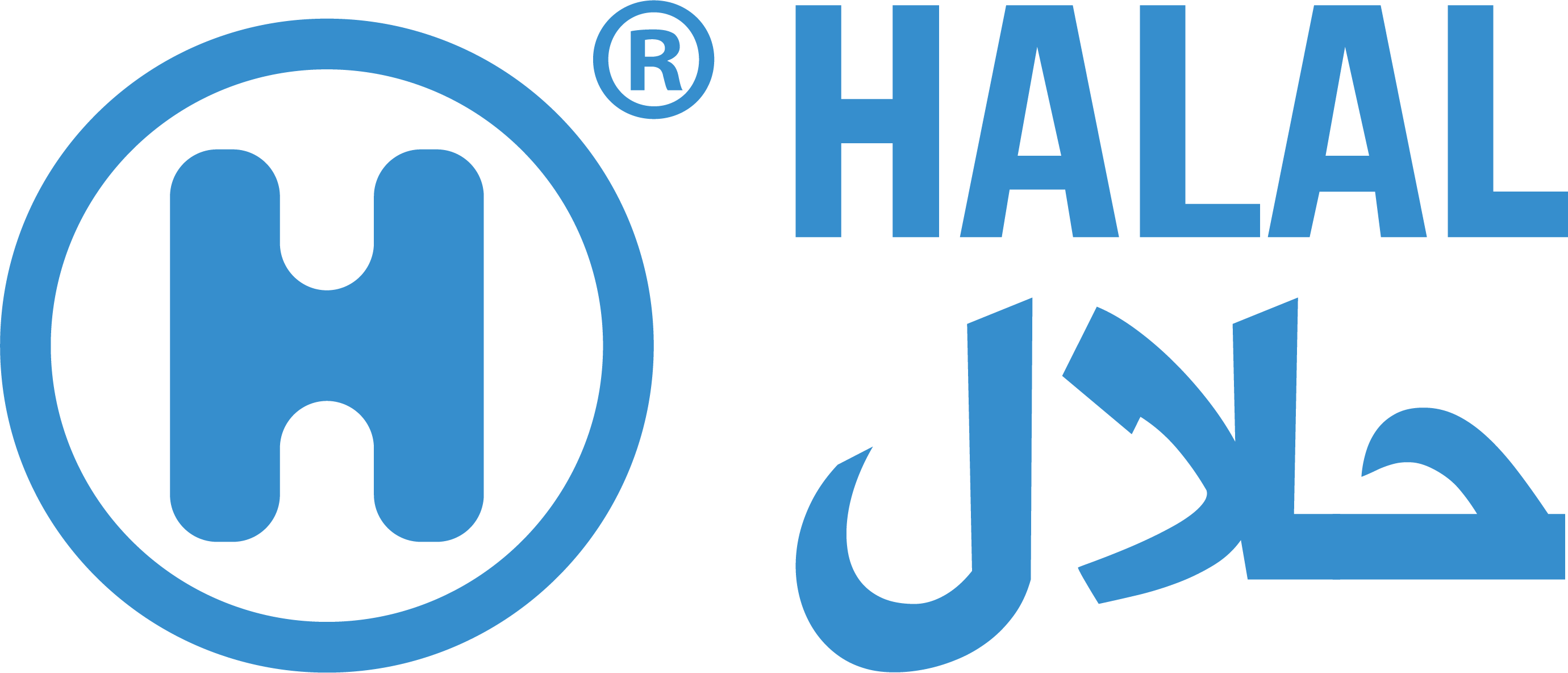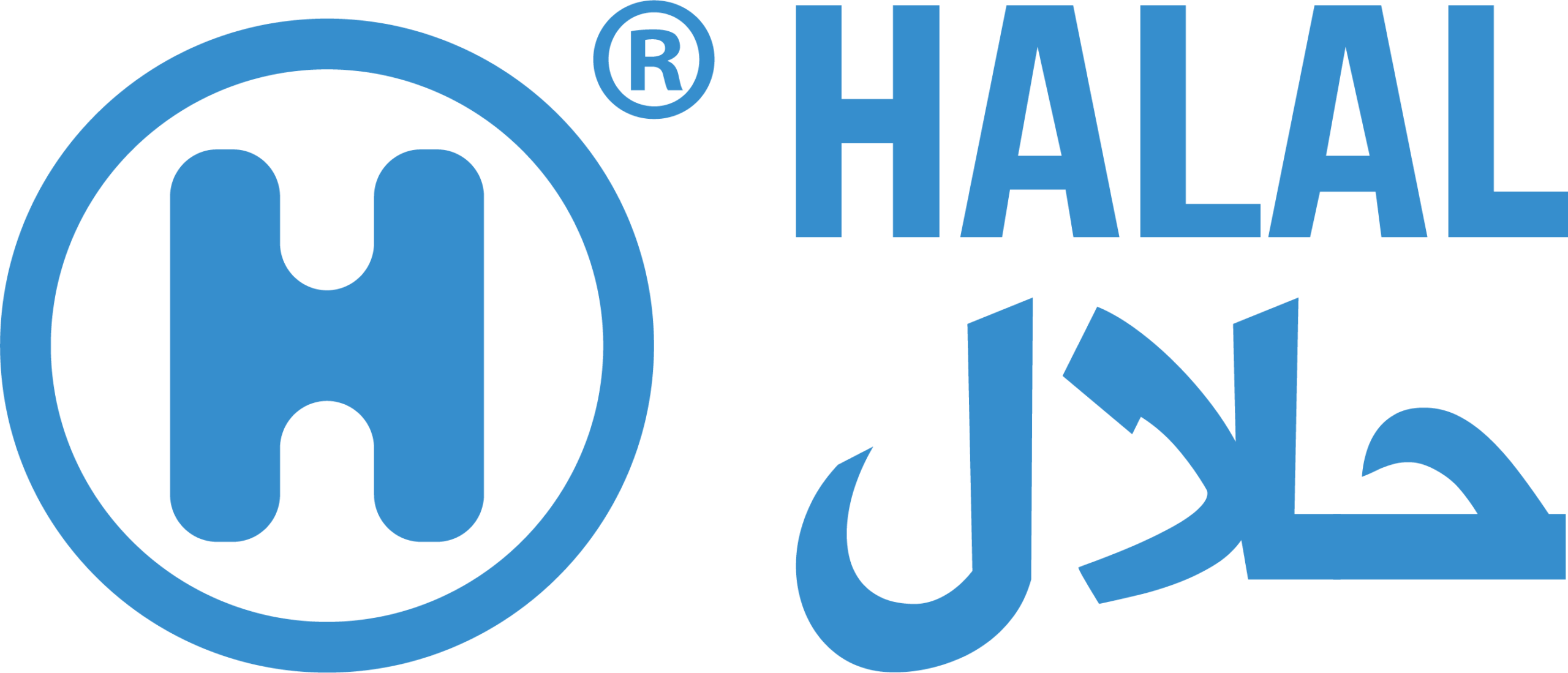The Ultimate Guide to Halal Certification: 7 Strategic Pillars for Global Business Expansion
In today’s hyper-competitive global marketplace, businesses are constantly searching for untapped revenue streams and sustainable growth opportunities. While many focus on technological innovation or traditional market expansion, a powerful, multi-trillion-dollar economy often remains overlooked: the Halal ecosystem. The demand for Halal-certified products is no longer a niche trend but a global phenomenon, driven by ethical consumerism, quality assurance, and powerful demographic shifts.
But what does it truly mean to be Halal-certified, and why is it one of the most critical strategic decisions a business can make today?
This definitive guide moves beyond simple definitions to provide a strategic framework for business leaders. We will deconstruct the core principles of Halal certification, explore its profound market impact, and outline a clear roadmap for implementation. This is not just about compliance; it’s about unlocking unprecedented access to a loyal and rapidly growing global consumer base.
Here are the seven strategic pillars of Halal certification that you need to understand to future-proof your business.
- The Core Distinction: Understanding “Halal-Certified” vs. “Non-Halal” To tap into the Halal market, one must first grasp the fundamental difference between a product that is merely permissible and one that is formally certified. This distinction is the bedrock of consumer trust and market access.
Halal-Certified: This term signifies that a product, service, or process has undergone rigorous third-party verification to confirm its strict adherence to Islamic principles. This certification is a guarantee of integrity that covers the entire value chain—from the sourcing of raw materials to manufacturing, packaging, storage, and transportation. The core tenets include:
Absolute Purity: Complete freedom from any ingredient explicitly forbidden (Haram), most notably pork and its derivatives, alcohol and other intoxicants, and blood.
Ethical Sourcing: For meat and poultry, certification requires adherence to Zabiha, the prescribed method of slaughter that emphasizes animal welfare and respect.
Avoidance of Cross-Contamination: Certified facilities must have stringent procedures in place to prevent any contact between Halal and non-Halal products, ingredients, or equipment.
The Concept of Tayyib: Beyond just being permissible, the modern understanding of Halal is increasingly intertwined with Tayyib, an Arabic term meaning “wholesome, pure, and good.” This extends the standard to include ethical production, environmental responsibility, and overall product safety.
Non-Halal: This category simply refers to any product that has not undergone this official verification process. It does not necessarily mean the product contains forbidden ingredients, but it lacks the third-party assurance that the Halal-conscious consumer demands. For this discerning demographic, the absence of a recognized Halal logo is a significant barrier to purchase, as there is no guarantee of compliance or purity. The certification acts as a bridge of trust between the producer and the consumer.
- Decoding Market Demand: A Non-Negotiable Global Opportunity Understanding the “why” behind Halal certification begins with appreciating the sheer scale and trajectory of the market. The global Halal market is projected to reach an astonishing $4.5 trillion by 2030. This is not a static figure; it represents a dynamic and expanding economic force.
The growth is propelled by several key factors:
Powerful Demographics: The global Muslim population is one of the youngest and fastest-growing demographics in the world. This new generation of consumers is digitally connected, brand-aware, and possesses significant disposable income. They actively seek products that align with their values without compromising on quality or modernity.
The Rise of the “Halal Seeker”: The demand for Halal products extends far beyond the Muslim community. A growing number of non-Muslim consumers are turning to Halal-certified goods due to a perception of higher standards. The Halal seal is increasingly viewed as a proxy for:
Superior Quality Control: The rigorous auditing process implies a higher level of scrutiny.
Food Safety and Cleanliness: The emphasis on purity resonates with health-conscious buyers.
Ethical and Humane Practices: Particularly in the meat and poultry industry, the principles of Zabiha appeal to those concerned with animal welfare.
Ingredient Transparency: Consumers with allergies or dietary restrictions (e.g., avoiding alcohol or certain animal-based additives) trust the clarity that Halal certification provides.
Geographic Expansion: While traditionally associated with the Middle East and Southeast Asia (led by giants like Indonesia and Malaysia), the demand for Halal products is surging in Western markets. Europe and North America have large, established Muslim communities and a growing mainstream interest in ethical and transparently sourced products.
For businesses, this data paints a clear picture: ignoring the Halal market is no longer an option. It is a direct path to new customer segments, international markets, and sustainable revenue growth.
- The Strategic ROI of Halal Certification: A Powerful Business Case Investing in Halal certification is not an operational expense; it is a strategic investment in growth with a measurable and significant Return on Investment (ROI). The benefits are both tangible and intangible, creating a powerful competitive advantage.
Direct Financial Returns:
Unlocking Market Access: Many Muslim-majority countries and major economic blocs (like the GCC) mandate Halal certification for the import of food, cosmetics, and pharmaceuticals. Certification is a non-negotiable passport to enter these lucrative markets.
Premium Pricing Potential: The trust and quality assurance associated with the Halal seal often allow businesses to command a premium price for their products. Consumers are willing to pay more for a guarantee of authenticity and integrity.
Increased Sales and Revenue: By becoming a viable option for hundreds of millions of consumers who were previously inaccessible, companies naturally see a significant uplift in sales volume.
A Proven Multiplier: The results speak for themselves. At Circle H, we’ve observed that the average ROI on Halal certification for our clients is up to 11x. A modest investment of $5,000 in the certification process can directly contribute to an increase in revenues of up to $55,000, often within the first year.
Intangible Strategic Benefits:
Enhanced Brand Reputation: Achieving Halal certification sends a powerful message that your brand is inclusive, culturally aware, and committed to the highest standards of quality and ethics. This builds immense brand equity and trust.
Forging Stronger Partnerships: Certification makes your business a more attractive partner for international distributors, retailers, and co-packers who serve Halal markets.
Future-Proofing Your Business: As global supply chains become more transparent and consumers demand higher ethical standards, having a Halal certification positions your business as a forward-thinking leader.
- The Expansive Scope of Halal Certification: Beyond the Plate A common misconception is that Halal certification applies only to food, particularly meat. In reality, the Halal ecosystem is vast and covers nearly every major consumer industry. Understanding this scope is key to identifying opportunities within your own sector.
Key industries requiring Halal certification include:
Food and Beverage: This is the most established sector, covering everything from raw meat and poultry to processed foods, dairy products, confectioneries, baked goods, and beverages. Every ingredient, processing aid, and additive must be compliant.
Cosmetics and Personal Care: This is one of the fastest-growing Halal sectors. Certification ensures that products like skincare, makeup, soaps, and perfumes are free from animal-derived ingredients (such as certain types of collagen and glycerin), alcohol, and other Haram substances.
Pharmaceuticals and Healthcare: This critical area covers medicines, supplements, and vaccines. The focus is often on ensuring that active ingredients, excipients, and capsules (often made of gelatin) are from Halal sources.
Logistics and Supply Chain: To maintain integrity, the entire supply chain can be certified. This includes Halal-compliant warehousing (with proper segregation), dedicated transportation fleets to prevent cross-contamination, and approved packaging and labeling practices.
Emerging Sectors: The principles of Halal are also being applied to finance (Islamic banking), tourism (Muslim-friendly hotels and travel), and even fashion (modest apparel).
For any business in these sectors, certification offers a pathway to differentiate their offerings and capture a dedicated market share.
- The Halal Certification Process Demystified: A 4-Step Roadmap While the process is rigorous, it is also systematic and straightforward when managed by a reputable certification agency. Understanding the steps involved can help your organization prepare effectively.
Here is a simplified 4-step breakdown of the journey:
Step 1: Application and Documentation Review The process begins by contacting a recognized Halal certification body like Circle H and submitting a formal application. This is accompanied by comprehensive documentation, including detailed lists of all ingredients and raw materials, supplier declarations, and manufacturing process flowcharts. This stage allows the certifier to conduct a preliminary assessment of your readiness.
Step 2: On-Site Facility Audit Next, a team of qualified auditors will conduct a thorough inspection of your production facilities. They will assess every aspect of your operation, including the receiving of raw materials, production lines, sanitation procedures, packaging, storage, and staff training. The key objective is to verify that your documented Halal Assurance System is being effectively implemented and that there are no risks of cross-contamination.
Step 3: Product Analysis and Laboratory Testing To provide an additional layer of scientific verification, samples of your products may be collected and sent to accredited laboratories. These tests can screen for traces of non-Halal substances, such as porcine DNA in meat products or alcohol content in beverages and flavorings, ensuring that your claims are backed by empirical evidence.
Step 4: Certification and Ongoing Compliance Once your facility and products have successfully passed the audit and testing phases, you will be awarded a Halal certificate and granted the right to use the certifier’s logo on your products. It’s important to note that certification is not a one-time event. It requires an ongoing commitment to maintaining standards, which is typically verified through annual renewal audits and sometimes unannounced inspections.
- Choosing Your Certification Partner: A Critical Business Decision The credibility of your Halal certification is directly tied to the credibility of the agency that issues it. Choosing the right partner is arguably the most important step in the process. Not all certifiers are created equal, and a certificate from a non-recognized body can be worthless for international trade.
Key factors to consider when selecting a Halal certification agency:
1- Accreditation and Global Recognition: Ensure the agency is accredited by and recognized by major international Halal authorities and regulatory bodies in your target markets (e.g., JAKIM in Malaysia, MUIS in Singapore, ESMA in the UAE).
2- Industry-Specific Expertise: Look for an agency with proven experience in your specific industry. A certifier that specializes in cosmetics will understand the unique challenges and ingredient nuances better than one that only handles meat.
3- Transparent Processes and Fees: A reputable agency will have a clear, well-documented certification process and a transparent fee structure with no hidden costs. They should be able to provide a clear timeline and dedicated support throughout the journey.
Stellar Reputation: Research the agency’s reputation within the global Muslim community and the broader industry. A trusted certifier adds value to your brand; a questionable one can detract from it.
- Your Next Step: From Compliance to Global Leadership Halal certification is far more than a technical requirement; it is a transformative business strategy. It’s a clear declaration of your company’s commitment to quality, integrity, and cultural respect. By embracing this standard, you are not just ticking a compliance box—you are unlocking the door to one of the largest and most loyal consumer markets in the world.
Understanding what Halal-certified means is the first step. Taking action is what will separate you from the competition and position your brand for a new era of global growth.
Are you ready to tap into the fastest-growing consumer market segment? Complete this Halal certification application in just 5 minutes to register your interest and begin your journey.
[Click Here to Complete the Halal Certification Application!]
Frequently Asked Questions (FAQs)
Q: What does “Halal-certified” mean in simple terms? A: Halal-certified means that a product has been officially verified by a recognized third-party authority to meet the strict dietary and ethical standards of Islamic law. This certification guarantees that it is permissible for Muslims to consume or use.
Q: How does a product qualify as Halal?
A: To qualify, a product must be completely free from pork, alcohol, and other forbidden ingredients. Furthermore, its entire production process—from sourcing to packaging—must adhere to strict guidelines that prevent contamination and ensure ethical and hygienic practices.
Q: Who decides what is Halal?
A: Halal standards are derived from Islamic scripture and interpreted by religious scholars and Islamic authorities. Reputable certification bodies work under the guidance of these authorities to apply and enforce these standards in a commercial context.
Q: What is the Halal-certified symbol?
A: The Halal-certified symbol is a registered logo or mark issued by a recognized certification body. When displayed on a product, it serves as an immediate visual guarantee to consumers that the product complies with all Halal requirements.
Q: What is the main difference between something being “Halal” and “Halal-certified”?
A: “Halal” is the Arabic word for “permissible” under Islamic law. A product or action can be inherently Halal. “Halal-certified,” however, means that this claim has been independently audited and verified by an expert third-party organization. The certification provides the official assurance and trust that modern consumers and import authorities require.


